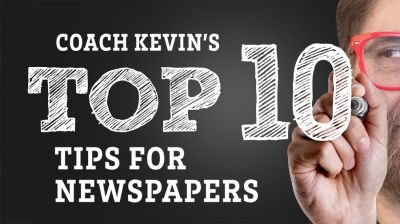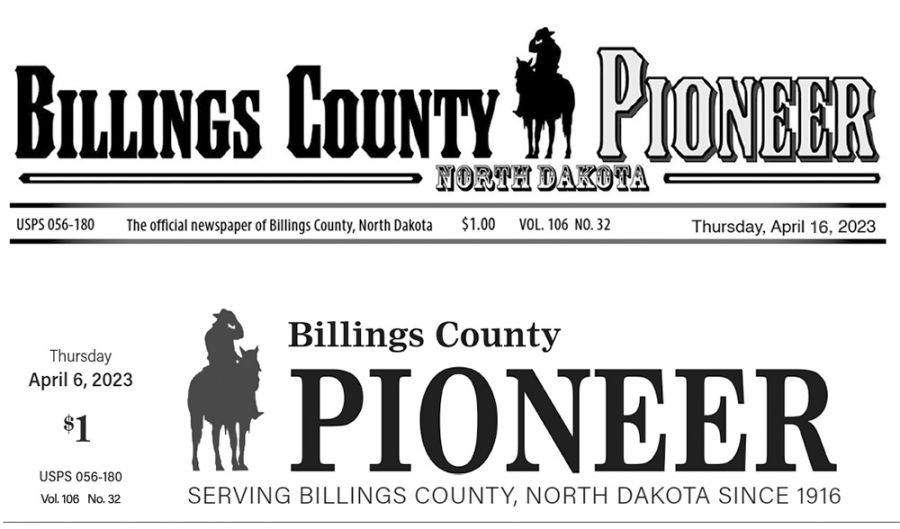As 2023 ends and 2024 begins, Kevin puts on his coaching cap
Kevin Slimp
Jan 1, 2024


Kevin’s Top 10 Tips for 2024
The end of one year and the beginning of a new year seem to make me a little reflective. In the past three weeks, I’ve found myself in 13 states. Traveling has allowed me to visit with many longtime newspaper friends and a few new ones. I’m often asked for advice in our conversations, especially as publishers contemplate plans for the new year.
Readers seem to like numbered lists, and it seems as if half the folks I know are “coaches” these days, so please humor me as I offer “Coach Kevin’s Top 10 Tips for 2024.” (Please forgive the superfluous alliteration.)
Tip 1: Watch for community members who could be valuable to your newspaper. A close friend recently retired and was quickly contacted by a community newspaper 20 miles away asking if he’d be interested in shooting pictures at ballgames a couple of times each week. He was surprised and thrilled. He’s having a great time taking photos of high school wrestling matches and volleyball games, and the newspaper is getting a great deal. Like many new retirees, he was concerned about filling his time during retirement. It’s a win/win.
Tip 2: Make it a habit to meet with reporters and designers to discuss ways to improve the content and design of your newspaper. Do you want to increase readership? The quickest way I know of is to improve the content and look of your newspaper.
Tip 3: Call the Small Business Bureau (in some states, grants come through the Economic and Community Development office) and ask about grants for small businesses. I’ve worked with papers in several states that have received grants to pay the entire bill for on-site training. These grants covered training costs and other expenses. A quick look at my state's website (Tennessee) states, “For the most part, the grants that go to small business owners generally fall in three areas: value-added agriculture, technology development and commercialization, and vocational rehabilitation.” Just about everything we do at newspapers can fit into the technology development category when applying for a grant. You can also find information about grants at grants.gov.
Tip 4: Replace your on-site backup drives every couple of years. They break down, and it can be a miserable experience when they do. Newspapers should also have off-site (cloud) backups in place. Your information can be safely stored off-site for just a few dollars each month.
Tip 5: Speaking of backups, most newspapers are Mac-based. Ensure every computer is set up to use Time Machine for automatic backups. Time Machine has saved me many times over the years. Just purchase an inexpensive SSD drive (usually around $100) for each computer to be used only for Time Machine.
Tip 6: If you haven’t already, create a master chart to track your sales calls. Be sure to include columns for “in-person,” “phone,” “text” and “email” calls. Look over your calls with your ad manager or publisher at the end of each week. A master chart is a straightforward method for increasing the number of calls, guaranteeing increased ad revenue. It is also an excellent reminder to make more in-person calls rather than relying too much on email or other contact methods.
Tip 7: Don’t let the design of your newspaper become stale. If your newspaper looks the same as it did 10 years ago, it’s too late. But it’s never too late to update the design.
Tip 8: Take advantage of training opportunities. Be aware of online and in-person training available through your press association and other organizations. It comes as no surprise that most successful newspapers make training a regular part of their routine.
Tip 9: Host a focus group of diverse community members annually to get opinions and share ideas about ways to improve your newspaper. People love being part of focus groups, and it’s an effective way to get solid information to enhance your product.
Tip 10: Be a “hands-on” publisher. The most successful papers I’ve worked with in 2023 have publishers who are hands-on in the daily operation of the newspaper. Years ago, a young editor called me panicked when she had been offered the publisher’s position at a nearby daily paper. “What does a publisher do?” she asked. “It’s simple,” I replied. “Either nothing … or everything.” Successful papers have publishers who are involved in the paper and the community.
Kevin Slimp is former director of The University of Tennessee Newspaper Institute and founder of NewspaperAcademy.com. kevin@kevinslimp.com.










